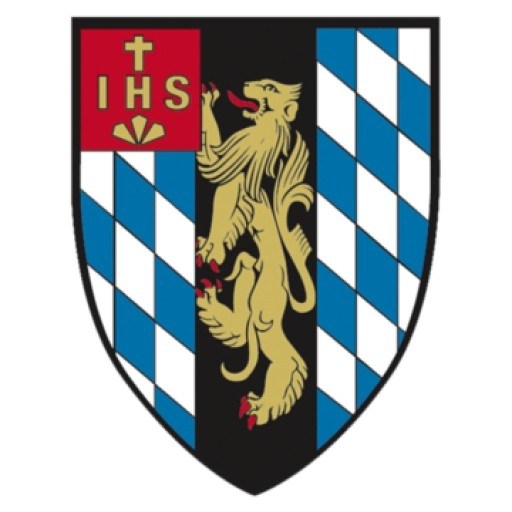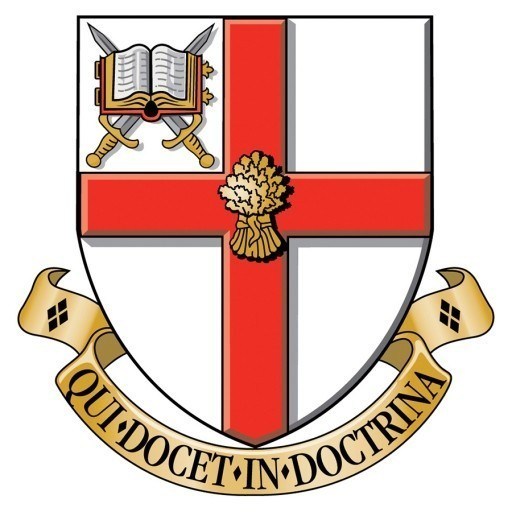Master of Arts in Christian Theology at Heythrop College offers an in-depth exploration of Christian religious thought, spirituality, and biblical studies. Designed for students seeking to deepen their understanding of theological concepts and their application in contemporary contexts, this programme provides a comprehensive curriculum that engages with historical and modern developments in theology. Through a combination of lectures, seminars, and independent research, students examine key topics such as biblical interpretation, philosophical theology, ethics, and the role of religion in society. The programme encourages critical thinking and analytical skills, fostering a nuanced appreciation of Christian doctrines and their implications. Students have the opportunity to engage with distinguished scholars and practitioners, participate in lively academic discussions, and develop their own research projects. The MA in Christian Theology is suitable for those pursuing careers in academia, religious service, or roles that require a sophisticated understanding of Christian belief systems. The programme is taught on-campus in London, offering an enriching environment for theological inquiry and intercultural dialogue. Graduates will be equipped with the intellectual tools to contribute meaningfully to religious, academic, or community settings, and to undertake further postgraduate research if they choose. Throughout the course, students will also critically assess contemporary debates within Christianity and explore the relationship between faith and reason. The programme aims to produce reflective practitioners who are capable of engaging with complex theological issues with confidence and integrity. This course holds recognition for its rigorous academic standards and its commitment to fostering an inclusive and contemplative learning atmosphere.
The degree is made up of four modules and a dissertation which you complete at the end of the course, on a topic of your choice, approved by your supervisor. The core modules typically explore how key themes of Christianity have been understood and explained by the church and by key scholars over time, and also investigate current challenges, debates, and the responses of contemporary theologians. There is then an opportunity to focus your study on the links between scripture and life in the Church, the challenges facing Christian practice today, or on inter-religious encounter.
With the approval of the Programme Convenor, you may be able to replace the fourth module with one taken from another MA.
Examples of the modules available are:
CTH411 Augustine and the Christian Tradition
This first module is an introduction to Augustine, who has influenced Christian thought in the West more than any other post-Biblical writer. We shall follow his influence down into the eighteenth century, to give an idea of the classical theology which the modern thinkers you will then explore have had as a foundation to build on or react against. After a brief introduction to the criteria of truth in the Christian tradition, the module will examine central writings of Augustine and the way in which they have shaped Western Christian teaching, with special attention to the following topics:
The Trinity and Christ, Christ and the Church
The human person in the image of God, nature and grace
The Church in the World, Sex and marriage
The heirs of Augustine in the Reformation and Counter-Reformation
Augustine and the Enlightenment
CTH412 Central Themes in Modern Christian Theology
This module looks at the key themes in Christian theology, especially Trinity, Christology and Soteriology, using modern theologians and ideas as the main emphasis for study. Topics covered will typically include:
The role that a doctrine of creation can play in our understanding of God.
The doctrine of election in connection with the doctrine of God.
The links between the paschal mystery and the Trinity, especially with regard to divine suffering.
The role that experience can play in theology, and how best to understand the development of dogma to which its inclusion gives rise.
The classic metaphors of salvation in the Christian tradition, displaying a hermeneutical sensitivity to their use.
The main soteriological strategies of the twentieth century to be found in transcendental Thomism, theologies of liberation and dramatic soteriology.
The recovery of eschatology in current soteriology.
One of the following:
PAS415 Religion Context and Crisis
This module will address critical issues of the contemporary context from sociological and theological perspectives. It will model the pastoral theological approach and methodology and deepen understanding of themes of political and liberation theology and the sociology of religion.
CTH404 Alienated Siblings: Jews and Christians
The relationship between the Jewish people and the Christian Church is explored in this module:
The split between Jews and Christians in the decisive parting of the ways in the 1st Century CE
Currents of anti-Jewishness in Christian thought (the teaching of contempt)
Vatican IIs Nostra Aetate and Christian-Jewish relations
The emergence of a new Christian theology of Judaism in the modern period
Theological issues in the developing dialogue
Modern Jewish responses to Christianity
Collaborators or competitors?
And one of the following:
BIB511 The Bible in the Life of the Church
This module examines the Bible as the central religious, spiritual, intellectual and cultural source of communities of faith: Judaism and Christianity in its various denominations. Exegetical analysis of selected Biblical texts will be reflected against the backdrop of their theological, liturgical, artistic and musical reception. Communities of faith will be seen both as the hermeneutical framework for the interpretation of canonical texts as well as inspired and fostered by them. According to specific interests of students, the module will also give an opportunity to improve practical skills regarding the ministry of the Word.
CIR402 Christianity in Dialogue
This module begins with the emergence of a theology of religions and considers the questions it raises for the uniqueness of Christ; it builds on the Jewish matrix for Christian theology and discusses key themes, such as Church and Mission, dialogue and inculturation, salvation and the action of the Holy Spirit in a pluralist world.
Weekly two-hour classes for each module are interactive with students. In general, lectures and other input from lecturers provide an overall perspective on the subject and enable you to engage with the material with a variety of different understandings. Classes benefit from the lecturers current research and writing. You extend your understanding through directed reading, which make up the biggest single element of your learning time. Tutorials on your work sometimes in draft contribute to deepening and widening understanding, and also discuss how best to present arguments and use sources. The dissertation is an opportunity for an extended independent investigation of a topic, with guidance from your supervisor.
Each module is taught by a two-hour session once a week over the 11-week term, so that classes take place on one evening a week for a part-time student or two for a full-time student. Additionally, you will have tutorials and meetings with a supervisor in relation to the dissertation. You will need to spend about six hours in each week for each module on directed reading in preparation for from the classes, and a similar amount of time some of it out of term-time on researching for and writing your coursework assignments and end of year essays.
Each module is assessed by coursework during the module or shortly after its end, and by a 4,000 word essay done by the end of the year. Coursework tasks vary to reflect the module content and learning outcomes. Examples include portfolios, reviews of books and other secondary literature and essays. You will also complete a dissertation of between 12,000-15,000 words.
Program requirements for the Christian Theology degree at Heythrop College include a combination of foundational courses, specialized modules, and assessments designed to develop a comprehensive understanding of theological concepts. Students are expected to complete core modules such as Introduction to Christian Theology, Biblical Studies, and Historical Development of Doctrine, which establish a strong conceptual framework. In addition to these, students choose options from a range of elective modules, including Ethics, Religious Thought, and Pacific Theologies, allowing for specialization and broader academic exploration.
Participation in seminars, workshops, and group discussions is mandatory to enhance critical thinking, analytical skills, and engagement with contemporary theological debates. Students must undertake a research project or dissertation in their final year, demonstrating ability to conduct independent scholarly inquiry and contribute original insights to the field. Assessments are primarily via essays, presentations, and examinations, with peer and tutor feedback integrated into the evaluation process to support continuous learning and improvement.
To enroll in the program, applicants typically need a relevant undergraduate degree or equivalent qualification, along with a demonstrated interest in theology and religious studies. International students may be required to meet English language proficiency standards. The program also encourages involvement in community outreach and ecclesiastical activities, reflecting its integration of academic learning with practical engagement. Overall, the Christian Theology degree at Heythrop College aims to produce graduates equipped with rigorous theological knowledge, critical reasoning skills, and a reflective understanding of Christian faith and practice, preparing them for careers in academia, church leadership, or related fields.
The Christian Theology program at Heythrop College offers a range of financing options to support students throughout their academic journey. Prospective students are encouraged to explore various sources of funding, including government financial aid programs, scholarships, and bursaries provided specifically for religious and theological studies. The college collaborates with several religious organizations and foundations that offer financial assistance tailored to students pursuing degrees in theology and related disciplines. Additionally, students may be eligible for undergraduate or postgraduate student loans, depending on their nationality and residency status, which can cover tuition fees and living expenses. Heythrop College also provides information on external funding opportunities, such as charity grants and denominational support, which can help mitigate the cost of studies. International students are advised to consider scholarship schemes tailored for international applicants, as well as any financial aid available through their home countries. The college’s financial aid office offers personalized advice and guidance to help students identify suitable funding sources and complete necessary applications. It is recommended that students apply early, as some funding options have strict deadlines and limited availability. The college’s commitment to accessible education is reflected in its efforts to provide comprehensive financial support mechanisms, ensuring that talented students from diverse backgrounds can pursue their ordained or academic interests in Christian Theology without undue financial hardship. Students are encouraged to regularly check the Heythrop College website and contact the financial aid office for the most current information regarding available funding opportunities and application procedures.
The Christian Theology programme at Heythrop College offers students an in-depth exploration of the fundamental beliefs, doctrines, and practices of Christianity. The course is designed to provide a comprehensive understanding of theological concepts, biblical studies, historical developments, and contemporary issues within the Christian tradition. Students are encouraged to examine the role of religion in society, engage with philosophical questions related to faith and reason, and explore the diversity of Christian thought across different denominations and cultures. The programme typically combines lectures, seminars, and independent research, fostering critical thinking and analytical skills. It aims to equip students with the ability to interpret sacred texts, understand theological debates, and articulate their own perspectives on spiritual and ethical questions. Throughout the course, there is a strong emphasis on academic inquiry, preparation for careers in religious education, pastoral work, or further theological research. The programme also offers opportunities for practical engagement, such as visits to religious sites and interactions with clergy and theologians. Graduates of the Christian Theology programme are well-positioned to pursue postgraduate studies or careers in church leadership, interfaith dialogue, education, and social justice initiatives. The curriculum reflects the college’s commitment to fostering an inclusive, critical, and reflective approach to understanding religion's role in the modern world.







